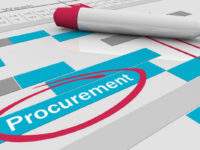The end of the financial year creeps up with alarming speed each year and it can be a challenging and time-consuming period for small-business owners. The good news is it’s not too late to make the upcoming end of the financial year a little less stressful and help set yourself up for success next year. So how can your small business ensure tax time runs smoothly?
Check your claims
Having a good understanding of the kinds of expenses you can claim as tax deductions has the potential to cut your tax bill, potentially more than you may think.
Small-business owners can claim running expenses as deductions on their income tax returns like rent and utilities, office expenses, staffing costs and expenses for marketing, insurance, travel and training.
“If your business has any of these expenses and you’re not claiming them as tax deductions, you’re leaving money on the table,” Scott Bailey, Senior Director and Head of Tax Accounting at ITP Accounting Professionals, says.
Small businesses can also claim capital expenses as tax deductions. Capital expenses include either the purchase cost of a depreciating asset or any expenses incurred during the transportation or installation of the asset.
Depreciating assets are items like machinery, EFTPOS machines, motor vehicles, furniture, computers and mobile phones which have a limited life expectancy and decline in value as they get older.
Consider pre-paying some expenses
ITP Accounting Professionals say one of the biggest misconceptions about tax time is that small-business owners do not appreciate some of the legal strategies that can help reduce their tax bill.
One common strategy is to pre-pay expenses like rent, insurance, website domain registration fees or website subscriptions before the end of the financial year to reduce your business’s taxable income for the current year.
Before you prepay expenses, ITP Accounting Professionals says you should consider the potential implication on your business’ cashflow and only pre-pay expenses that are genuinely needed for the business.
Check if you are eligible for other incentives
This year, there have been changes to some of the rules around tax incentives introduced to help assist businesses during the height of the COVID-19 pandemic.
Temporary full expensing was introduced to help encourage business investment and applies to businesses with an aggregated turnover of less than $5 billion.
Businesses can claim an immediate tax deduction for the business portion of the cost of eligible new depreciating assets that were first held and first used or installed and ready for use for a taxable purpose after 6 October 2020 until 30 June 2023.
Your small business may also qualify for the Small Business Income Tax Offset Grant which offers tax offsets of up to $1000 a year for unincorporated small businesses.
The Australian Tax Office (ATO) will determine the offset based on your business income.
Other top tips from the tax experts include:
- While 30 June officially marks the end of the financial year, your business tax return must be filed by 31 October or may extend to 15 May if you work with a registered tax agent.
- Make sure you keep good records. Many tax deductions are left unclaimed because of missing paperwork. The ATO also requires all individuals and small-business owners to keep records as proof of their tax claims.
- Get ready for next year now. Consider setting up a system on a spreadsheet, app or specialised software to keep all your financial records in one place.
With just a little bit of planning and extra insight, the end of the financial year does not have to be such a taxing time for your small business.
NB: The advice above is general. It is advisable to consult a registered tax professional regarding your specific tax situation.
















